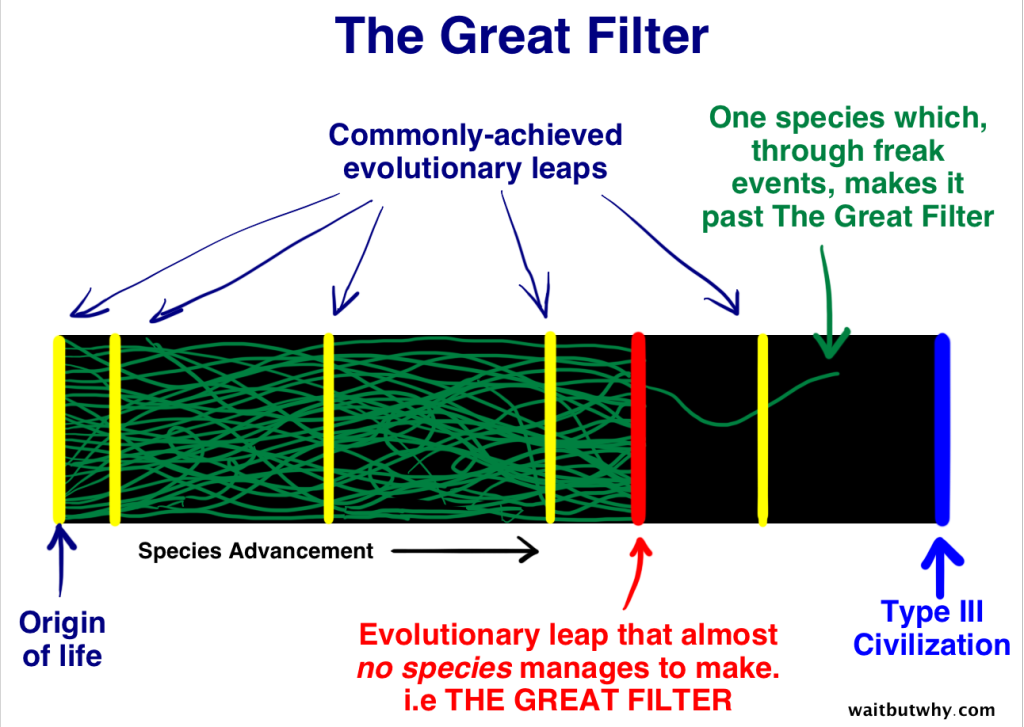On the Fermi paradox (pt 2)
This is the second post on the Fermi paradox. Check out the first one here.
Quick recap: the Fermi paradox is a contradiction between the high probability of advanced extraterrestrial life existing and the lack of any definitive proof of its existence.
There have been many attempts to explain the paradox. They fall into two broad groups:
- There are advanced civilizations out there, but we haven’t detected them for good logical reasons.
- There are no signs of advanced civilizations because there are none out there; we are alone in this universe.
Group 1 assumes the mediocrity principle, or the idea that nothing about Earth or life on Earth is rare or special. We’re just a basic species on a basic planet in a basic solar system. Here are some of the suggested reasons why we don't have any reliable evidence of intelligent extraterrestrial life:
- Sufficiently advanced civilizations may have developed a megastructure that captures its star’s energy to power everything they need, and they have no desire to explore the vast unknown universe.
- Our means of communication may be too primitive and outdated. Perhaps no other civilization uses radio waves.
- Advanced species may be very different from us. Imagine attempting to communicate with ants. Now imagine that we’re the ants, why would a superintelligent species even bother?
- We’re deliberately being avoided to allow for our natural evolution and development. It’s called the Zoo hypothesis. This one’s weird, I honestly don’t get it.
- As sentient beings, we have only been on Earth for a mere 50,000 years - a minuscule fraction of time compared to the universe, which is estimated to be around 13.7 billion years old.
Group 2 rejects all of these explanations, arguing that if there was even a tiny probability of them being wrong, we would have seen evidence of alien life. Instead, they propose the Great Filter hypothesis as an alternative.
This theory suggests that there is a hurdle (or “filter”) so difficult to overcome that almost no species can surpass it and evolve further. Most species are wiped out before they can develop highly advanced civilizations. It’s possible that the reason we have not yet discovered alien life is because any life that may have existed has since become extinct.

Things become even more interesting and perplexing if we accept the Great Filter hypothesis. The question then becomes: at what point in a species' evolution does it encounter the filter?
It’s possible that it’s rare for life to begin at all. It may also be exceptionally rare for life to evolve from single cells to animals with intelligence comparable to humans.
But it's also possible that the Great Filter is yet to come. Perhaps it's highly improbable for a species to colonize other planets and star systems, and the same technologies needed to achieve this could become an existential threat. I'll write a post on existential risks at some point, but some of these include the risk of large-scale nuclear war, climate disaster, biological weapons, and hostile artificial general intelligence.
What do you think — is the Great Filter behind us or ahead of us? Are we lucky or are we doomed?